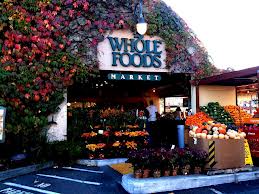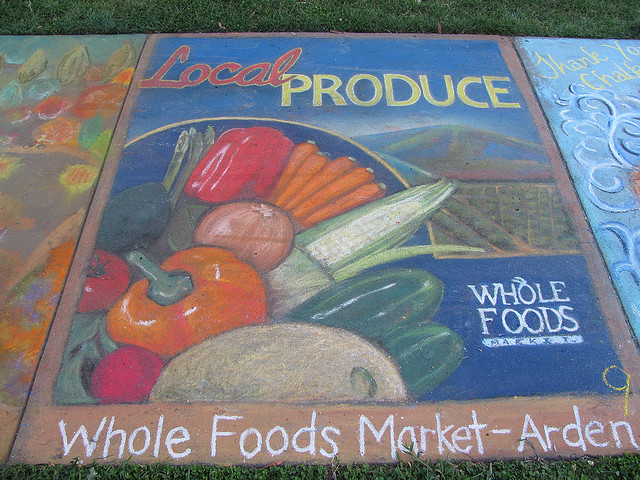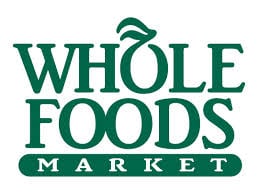
There are companies who do it better than others, and those who do it better, eventually gain more customers, and a larger portion of that market. I am talking about priming consumers how to subconsciously shop by precise marketing tactics that show symbolism of freshness and purity.
For instance, Whole Foods Market strategically places fresh flowers at the entrance of their stores to create an illusion of fresh, different and what it means to have high quality not only in their products, but as well as in their environment. A study indicated that flowers are associated with implications of fresh, therefore, gives the consumer walking in an unconscious suggestion that the store is bursting with freshness. They have dominated this type of consumer priming that positioned them to be leaders in the market, “priding themselves on selling the highest quality, freshest, and most environmentally sound produce.”
Another occurrence is the abundance of ice everywhere and sprinkled drops of water on produce being another symbolic unconscious suggestion of freshness and purity again. There is no actual need for the ice and constant water drops, as it tends to make the produce rot more quickly. However, the point is the perception and illusion of the products being fresh and of high quality and that association is continued subconsciously, with the consumer as they shop. Approaches alike are being implemented as retailers use these mechanisms of luring and encouraging customers to spend more than they need to and more than they intended to.
The point is that by focusing on how to hook and gain customers, is quality compromised at all? Definitely not, as one of the main differences between Whole Foods Market and other retail supermarkets is that they can actually back it up with all the products they offer and high level of customer service they provide. They have quality standards and are extremely devoted to serving the consumer as the medium in making informed choices when it comes to discovering the best of the best. From seafood, meat and animal welfare to unacceptable ingredients in food they do not carry*. Their core business is to sell the highest quality foods they can possibly find at the most competitive prices. In addition, they evaluate quality in relation to nutrition, freshness, appearance, and taste, and their search for quality is a continual process involving the vigilant decision of buyers throughout the company.
So why do customers keep coming back even if they know they are being primed? They like the experience of going in there, as it is aesthetically pleasing to consumers’ senses and their subconscious. Besides, who doesn’t want better, quality products that aim at always being environmentally sound, and that are good for your mind, body and soul? Everyone’s a winner in this occasion.


Sources:
http://www.fastcompany.com/1779611/how-whole-foods-primes-you-shop
http://www.wholefoodsmarket.com/about-our-products/quality-standards/unacceptable-ingredients-food
*disclaimer from WHOLE FOODS reserving the right to change this list at any time. Please note that creating a product with no unacceptable ingredients does not guarantee that Whole Foods Market will sell it. This list is intended for illustrative purposes only. If you are interested in selling your product to Whole Foods Market, please contact a WFM buyer.
